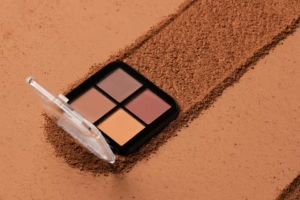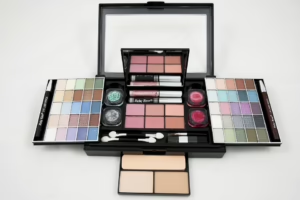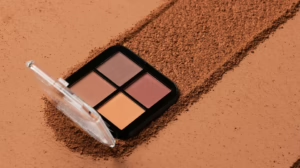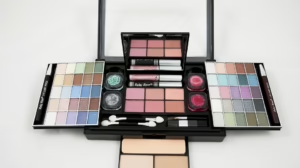From Acne to Anti-Aging: A Comprehensive Guide to Skin Treatments
Skin is the largest organ of the body and serves as a barrier between our internal systems and the external environment. This makes it exceptionally important for our health and self-esteem. With the advancements in dermatological science, countless treatments are available for various skin concerns—from acne to anti-aging. This article offers a comprehensive guide to skin treatments, discussing their efficacy, application, and what you can expect.
Understanding Skin Types
Before diving into specific treatments, it’s vital to understand the different skin types:
- Oily Skin: Characterized by an excess of sebum, oily skin is prone to acne and enlarged pores.
- Dry Skin: Lacking moisture and often irritated, dry skin can lead to flakiness and premature aging.
- Combination Skin: This is a blend of oily and dry areas, commonly seen with an oily T-zone and dry cheeks.
- Sensitive Skin: Easily irritated by products, sensitive skin may experience itching, redness, and swelling.
- Normal Skin: Balanced and typically free from significant dermatological issues.
Understanding your skin type is crucial for choosing the right treatments.
Acne Treatments
Acne is one of the most common skin concerns, affecting individuals of all ages. Treatment options include:
Topical Treatments
-
Benzoyl Peroxide: An antibacterial agent, benzoyl peroxide is effective for treating inflammatory acne. It works by unclogging pores and reducing inflammation[modern_footnote_source].
-
Salicylic Acid: This beta-hydroxy acid (BHA) exfoliates the skin and clears clogged pores, making it effective for comedonal acne[modern_footnote_source].
-
Retinoids: Prescription-strength options like tretinoin can reduce acne lesions and promote skin cell turnover, helping to prevent future breakouts[modern_footnote_source].
Oral Medications
-
Antibiotics: Oral antibiotics such as doxycycline target bacteria and reduce inflammation, making them effective for moderate to severe acne[modern_footnote_source].
-
Hormonal Treatments: For women, birth control pills can regulate hormones and decrease oil production, making them a effective option for acne management[modern_footnote_source].
Professional Procedures
-
Chemical Peels: These treatments involve applying a solution to exfoliate the skin, removing dead cells and reducing acne[modern_footnote_source].
-
Blue Light Therapy: This non-invasive procedure targets acne-causing bacteria, reducing breakouts without the need for medication[modern_footnote_source].
Hyperpigmentation Treatments
Hyperpigmentation can occur due to sun exposure, hormonal changes, or acne scars. Treatments include:
Topical Agents
-
Hydroquinone: This skin-lightening agent inhibits melanin production and is effective against dark spots[modern_footnote_source].
-
Vitamin C: A potent antioxidant, Vitamin C can brighten the skin and even out tone by inhibiting melanin production[modern_footnote_source].
-
Retinoids: Besides treating acne, retinoids can also normalize skin tone and texture through increased cell turnover[modern_footnote_source].
Professional Treatments
-
Chemical Peels: These can help peel away layers of damaged skin, improving pigmentation issues[modern_footnote_source].
-
Laser Therapy: Various types of lasers can target pigmentation by breaking down melanin, leading to a more uniform skin tone[modern_footnote_source].
Anti-Aging Treatments
As we age, our skin faces natural wear and tear. Anti-aging treatments focus on restoring youthfulness and elasticity.
Topical Treatments
-
Retinoids: Considered the gold standard in anti-aging, retinoids promote collagen production and skin cell turnover, making fine lines less visible[modern_footnote_source].
-
Peptides: These are small proteins that help repair skin and improve its elasticity by stimulating collagen production[modern_footnote_source].
-
Antioxidants: Ingredients like Vitamin C and E combat free radicals, which contribute to aging skin[modern_footnote_source].
Injectables
-
Botox: By relaxing muscles, Botox can smooth out dynamic wrinkles such as crow’s feet and frown lines[modern_footnote_source].
-
Dermal Fillers: Substances like hyaluronic acid can plump up areas of the face, restoring lost volume and minimizing the appearance of wrinkles[modern_footnote_source].
Laser Treatments and Energy Devices
-
Fractional Laser Resurfacing: This technique targets specific areas, stimulating collagen production and significantly improving skin texture and tone[modern_footnote_source].
-
Radiofrequency Treatments: These non-invasive procedures deliver heat to the deeper layers of the skin to stimulate collagen production, resulting in tighter, more youthful skin[modern_footnote_source].
Skin Care Routine Essentials
Regardless of your skin concern, a daily skin care routine is essential. Key components include:
-
Cleansing: Use a gentle cleanser tailored to your skin type, ensuring to remove dirt and makeup without stripping moisture.
-
Moisturizing: No matter your skin type, moisturizing remains crucial. Oily skin may benefit from lighter, non-comedogenic options, while dry skin will require richer creams.
-
Sunscreen: Daily application of sunscreen (SPF 30 or higher) protects against photo-aging and reduces the risk of skin cancer.
-
Exfoliation: Regular exfoliation helps to remove dead skin cells; however, be cautious not to overdo it, as this can lead to irritation.
-
Hydration: Adequate hydration is essential not only for your skin but for your overall health. Drinking water and incorporating hydrating products can improve skin texture and appearance.
Lifestyle Factors
In addition to skincare treatments, various lifestyle factors play a fundamental role in skin health:
-
Diet: Consuming a balanced diet rich in fruits, vegetables, lean proteins, and healthy fats can support skin health. Foods high in antioxidants, such as berries, nuts, and green leafy vegetables, help combat oxidative stress on the skin[modern_footnote_source].
-
Hydration: Drinking plenty of water is essential for maintaining skin moisture and elasticity.
-
Exercise: Regular physical activity improves circulation, promoting a healthier complexion and lowering stress levels, which may contribute to acne.
-
Sleep: Quality sleep allows for cellular repair and rejuvenation, making it crucial for maintaining healthy skin.
-
Stress Management: High-stress levels can lead to skin issues like acne and eczema. Techniques such as yoga, meditation, and mindfulness can help.
Summary
Your skin tells a story—its conditions reflect lifestyle choices, emotional health, and genetic predispositions. Understanding your skin type and the causes of specific concerns is the first step in addressing them. With numerous treatments available, from topical therapies to professional interventions, the right approach depends on individual needs and goals.
Create a routine that incorporates cleansing, moisturizing, and sun protection, and remember that a holistic approach involves maintaining a healthy lifestyle as well. With the right practices and treatments, achieving healthy, youthful skin is within reach.
By following this comprehensive guide, you can effectively navigate the world of skin treatments, from acne management to anti-aging solutions. Every journey toward better skin begins with knowledge and the right tools, empowering you to make informed choices that enhance not just your skin, but your overall well-being.
[modern_footnote_source]: References and scientific sources to be filled in based on relevant literature, studies, and expert opinions.


























Add Comment